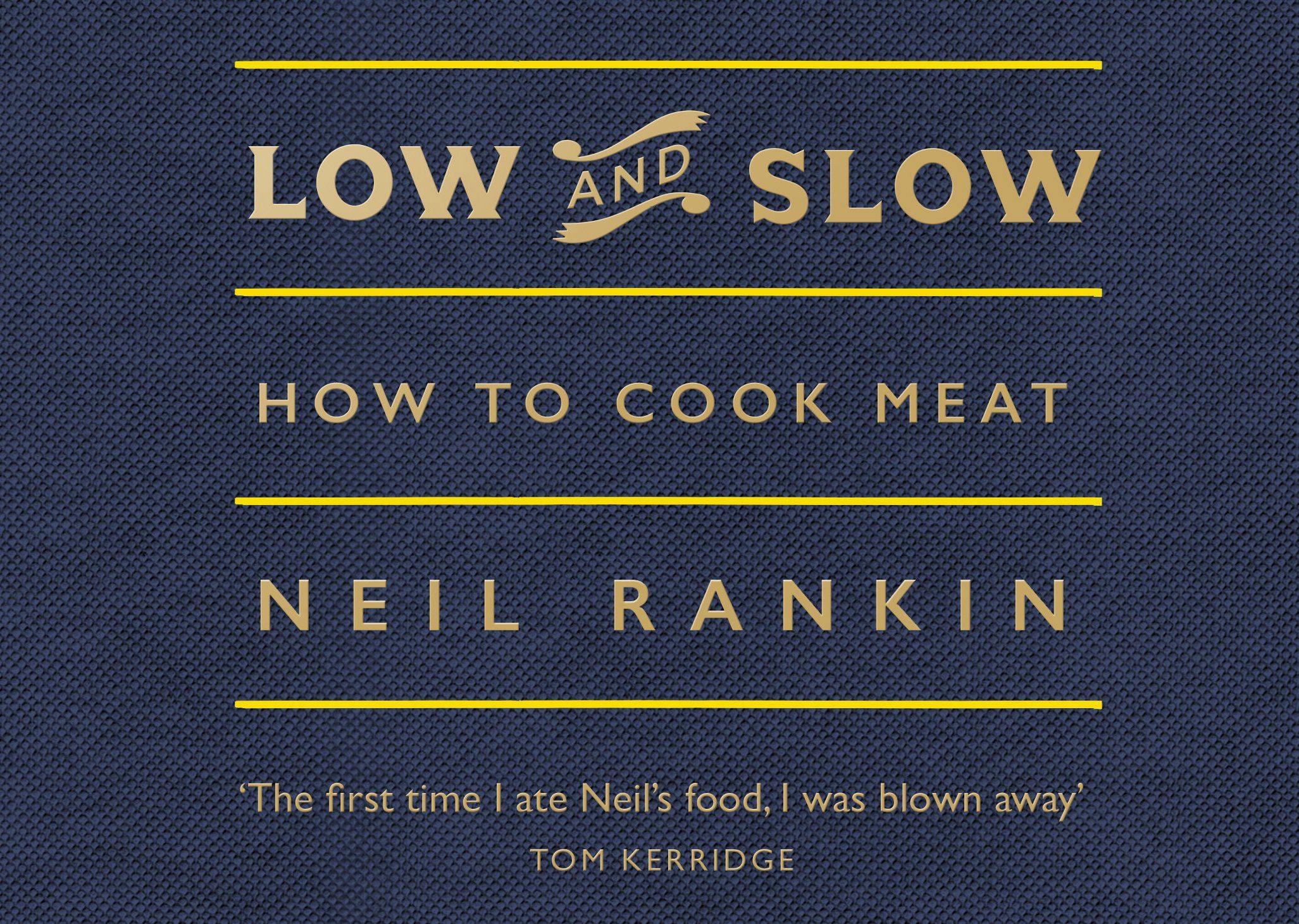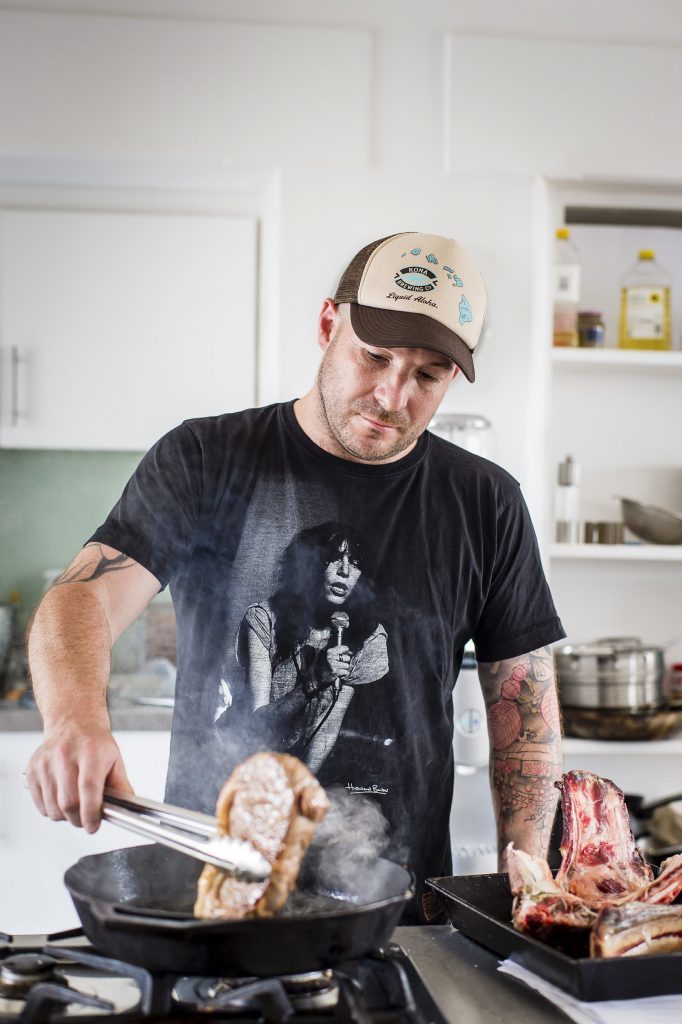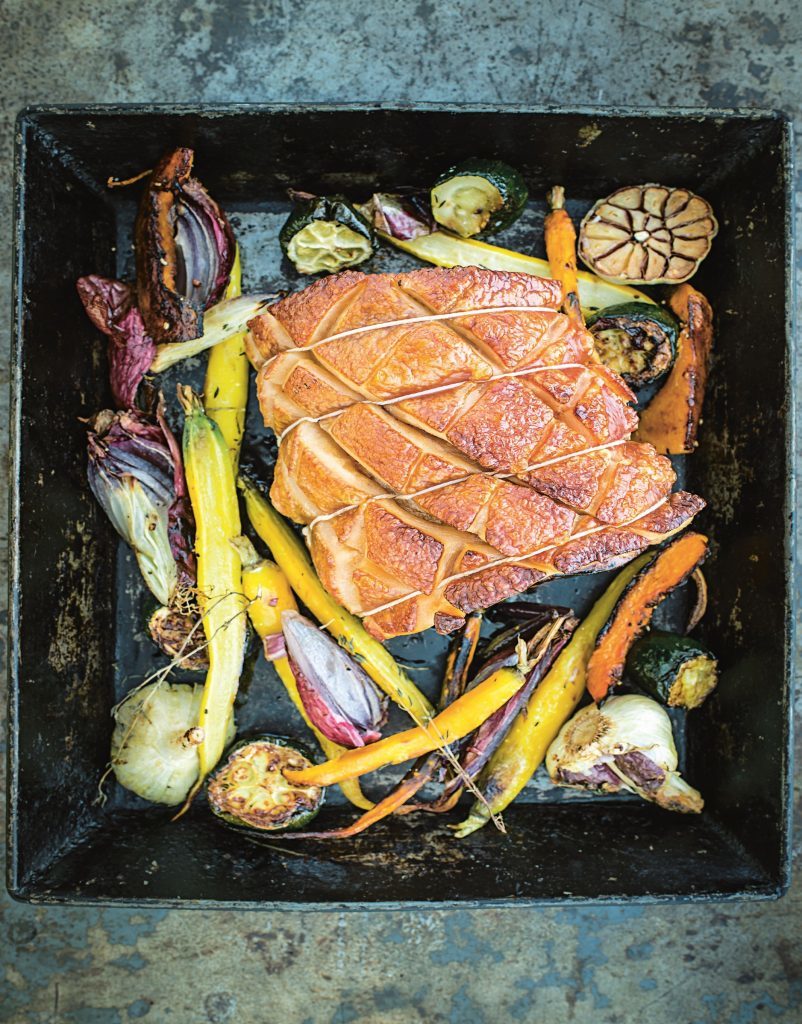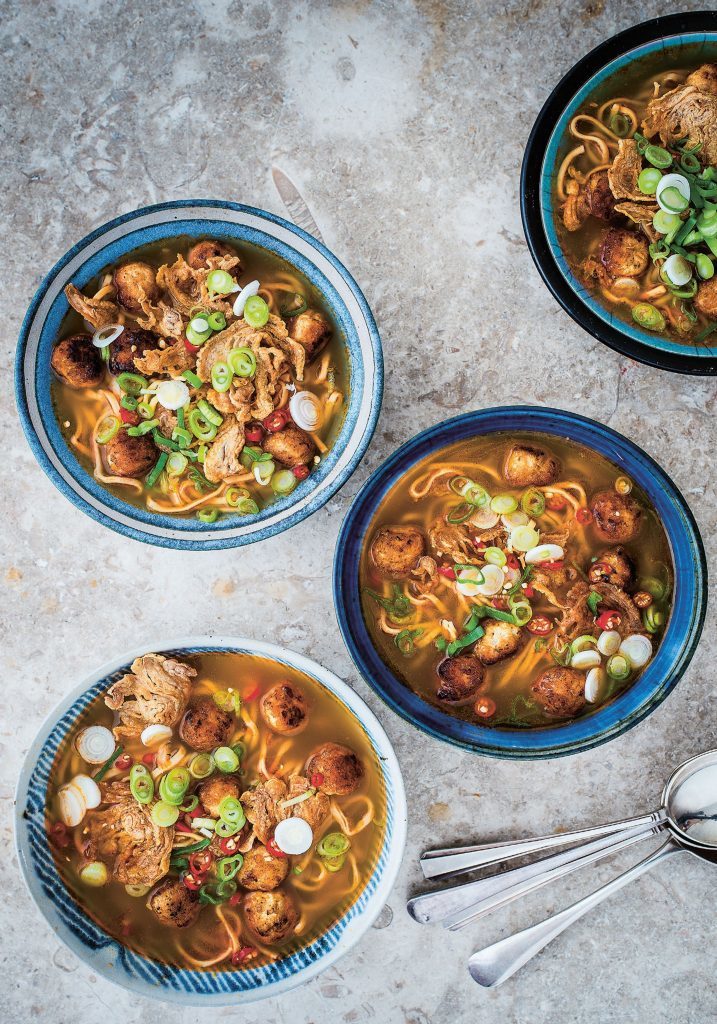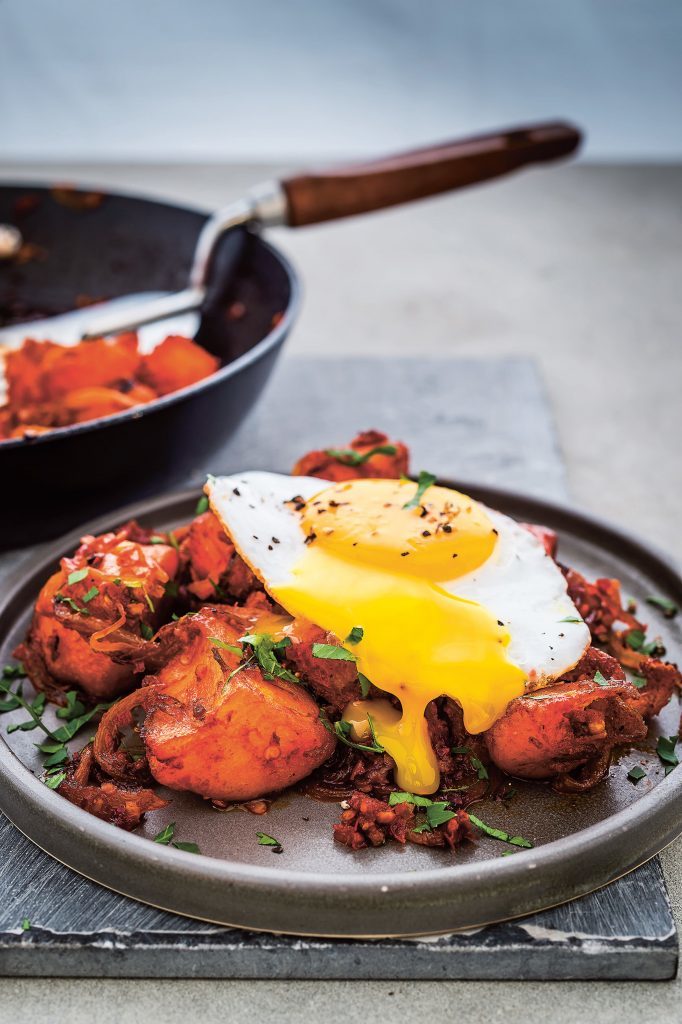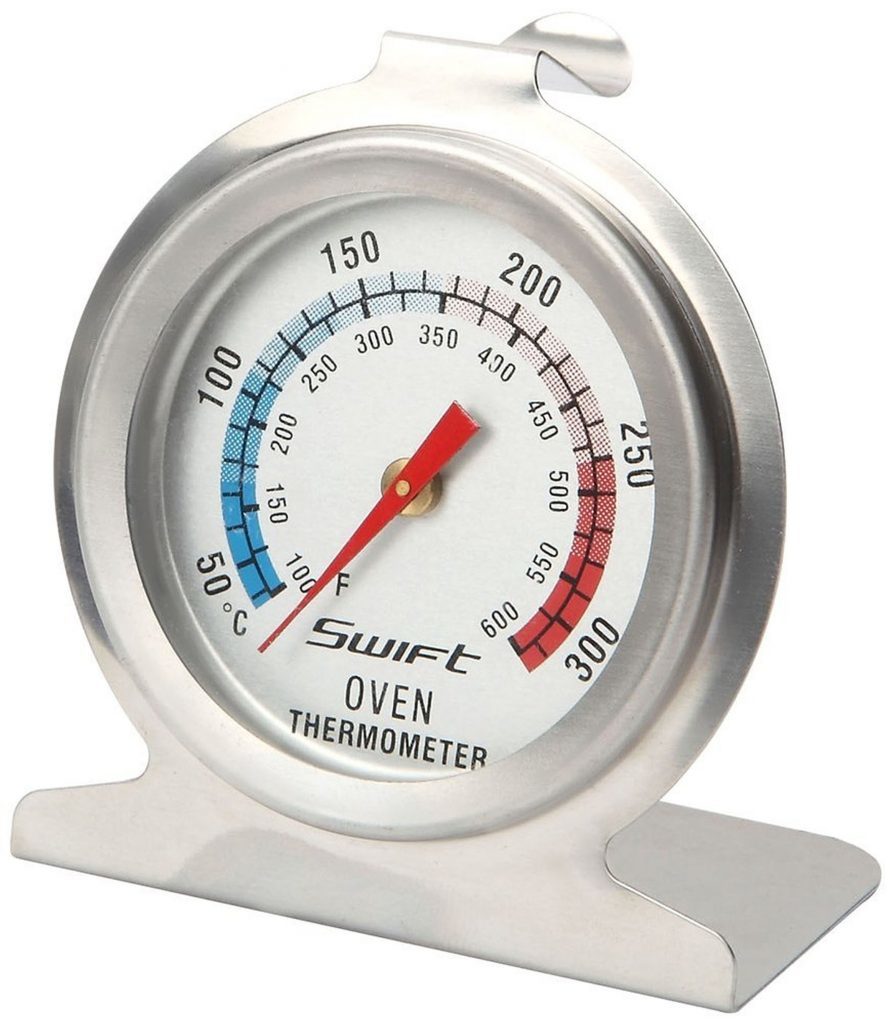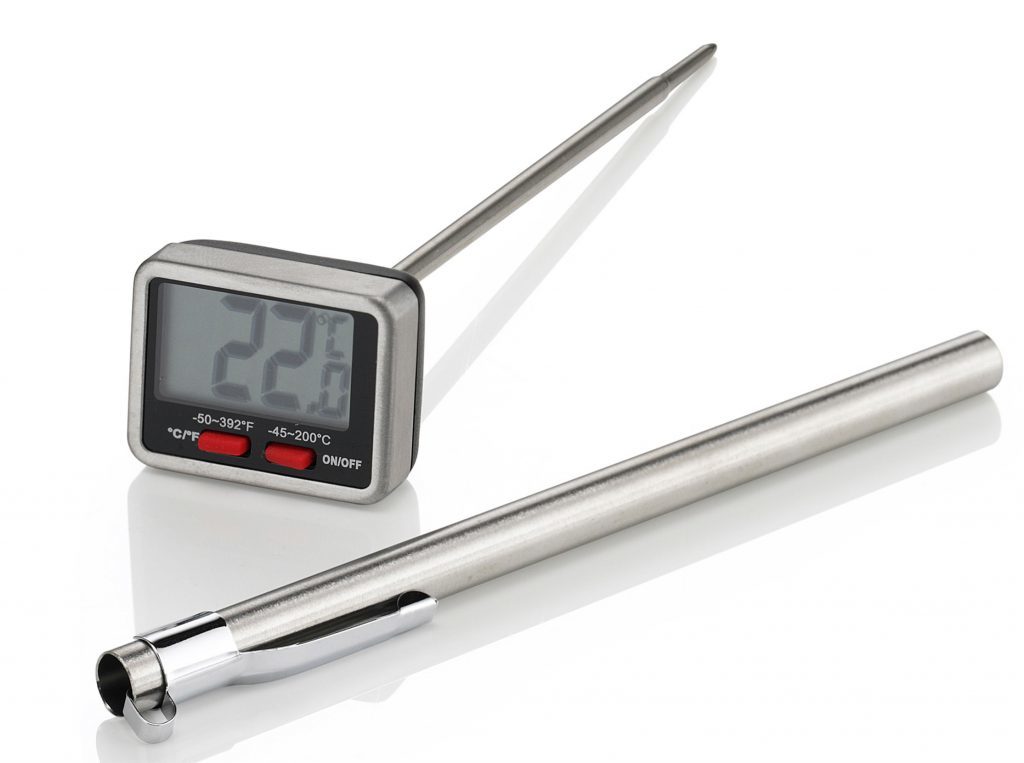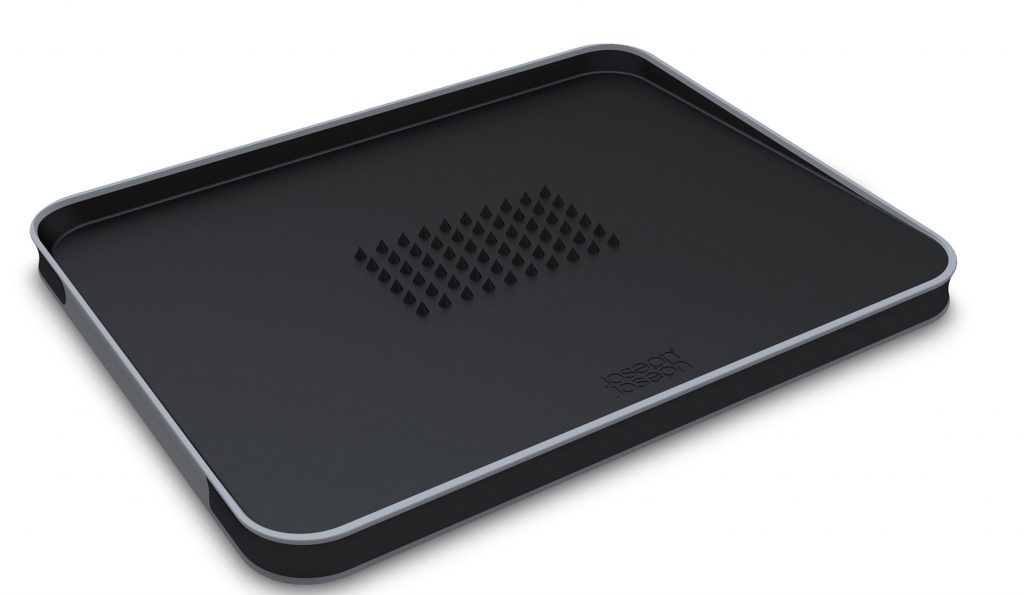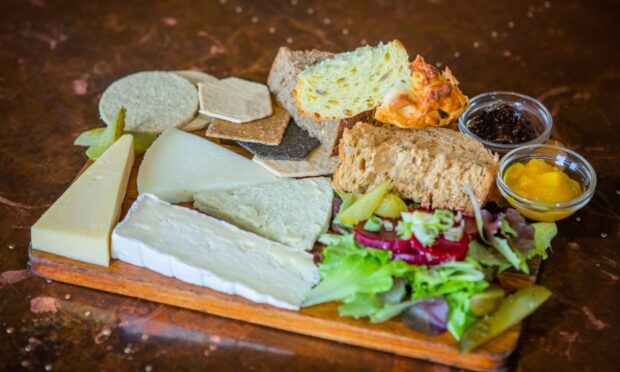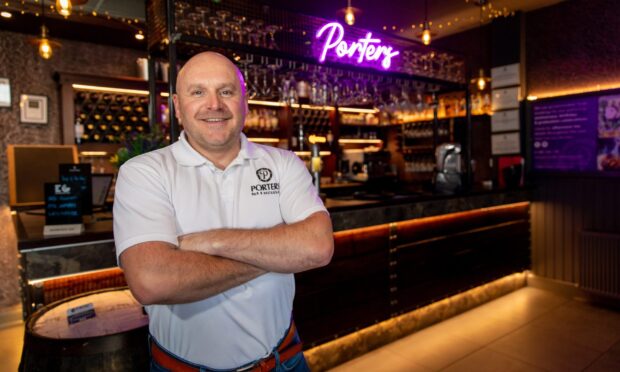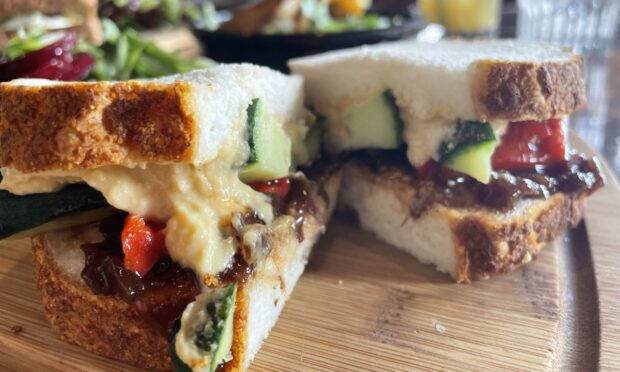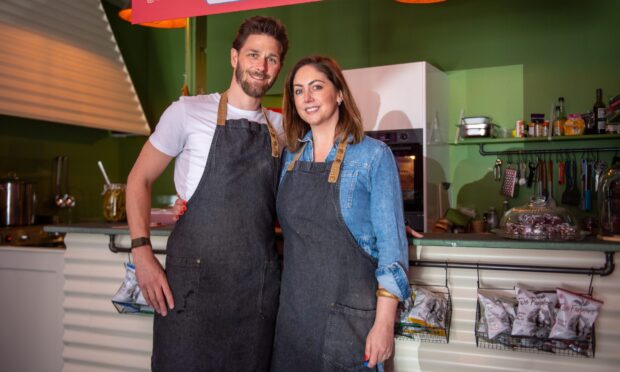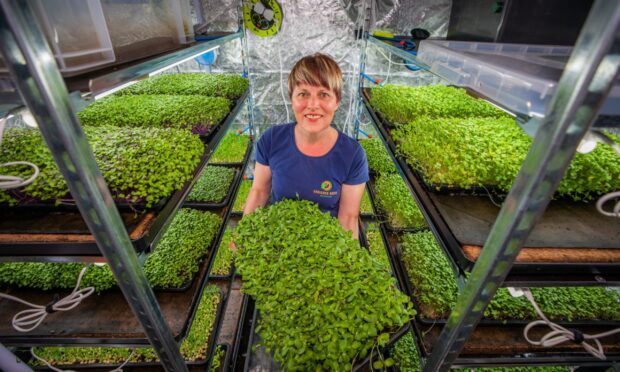Bid farewell to parched poultry, juice-less joints and burnt bangers – Neil Rankin is on a mission to transform our meat-cooking skills. Keeley Bolger tucks in
Neil Rankin can already predict the type of complaints people will level at his newly published cookbook.
“‘I’ve cooked a chicken a hundred times before – I don’t need to be told by you how to cook it; who do you think you are?!'” jokes the former sound engineer-turned-chef, laughing.
But there’s cooking meat… and then there’s ‘really’ cooking meat, and Neil has dedicated much time to the topic, delving into the science behind ensuring perfect results, as detailed in his first book, Low And Slow: How To Cook Meat.
Based in London, the Edinburgh-born foodie, who retrained as a chef a decade ago, seeks to clear up some confusion surrounding the subject. He doesn’t, for example, “get” the idea of resting meat.
“Every chef in the world rests meat and when they read my book, I’m sure they’ll say: ‘You shouldn’t have said that, of course you should rest the meat’, but actually, when you think about the physics behind it, it doesn’t make sense,” says the 39-year-old, whose East London home is filled with the scent of roast chicken bubbling away in the oven.
Instead of bowing to popular opinion, Low And Slow attempts to arm home cooks with explanations and information so they can make the most of meals. But it’s not, says Neil, a book for “people who don’t want to learn anything new, or don’t want to take anything on board”.
Keen to further his own knowledge, he is wise to the arguments for and against meat consumption.
Though he made his name opening the meaty Barbecoa restaurant with Jamie Oliver and Adam Perry Lang, as well as working at a string of other BBQ and smokehouses, Neil is firmly in the “buy better quality meat and less of it” camp.
“I don’t expect people to eat meat every day,” says the chef, who “tends” to eat vegetable-based meals during the week, and meat at weekends.
“I don’t think it’s good. I don’t think it’s right. I don’t think we’re supposed to. It’s a supplement to our diets that we’ve been eating for one-and-a-half million years, so it is important to have, but I don’t think you should have it all the time.
“You feel it inside when you’ve overdone it,” Neil adds. “But if you cook it really nicely for a celebration, then you’ll want it like that. The less people eat all this crap meat, the less will be made, and the better it will be.”
Fancy some top-notch meat this weekend? Here are three recipes from Low And Slow to crack on with…
:: THRICE-COOKED PORK LOIN
(Serves 4-6)
1.5 kg 8-10cm boned and rolled loin joint
Salt
Start the recipe the day before you want to eat it. Put the joint in a pan and cover with cold water. Bring to the boil, then simmer for 15 minutes. Remove from the heat and leave to cool in the water for 15 minutes. The pork should reach an internal temperature of around 55C.
Place the pan in the sink under running cold water. When the pork has cooled down so it can be handled, lift it out and dry with a tea towel. Salt the skin, then leave in the fridge overnight, uncovered, to dry slightly and chill.
Once it’s chilled, set your oven to 140C. Cook the loin from fridge-cold for 40 minutes. On a probe thermometer (meat thermometer) it should read no more than 60C internally.
Remove the pork from the oven. Cool slightly, then leave it in the freezer for two to three hours, or overnight in the fridge, to chill completely.
When you’re ready, set your oven to 220C. Roast the pork from fridge-cold for 30 minutes, placing the meat on a rack with a tray to catch any fat underneath. The skin should puff up like a balloon. If it goes too dark, pull the pork out and turn down the temperature, then put it back in.
The final internal temperature should be no higher than 63C – if it’s lower, don’t worry, as the core temp has already been reached during the previous cooking stages.
:: CHICKEN NOODLE SOUP
(Serves 4)
2kg chicken wings
4L cold water/chicken stock
300g minced chicken thigh
Soy sauce, to taste
Toasted sesame oil, to taste
2 onions, sliced
1 carrot, roughly chopped
3 garlic cloves, crushed
2tsp sriracha (hot chilli sauce), plus more for serving
Vegetable oil, for frying
200g chicken skin (should be available from your butcher; if not, take all the skin off two birds)
250g dried egg noodles
3 spring onions, finely sliced
2 fresh red chillies, finely sliced
Maldon salt
Set the oven to 100C. Place the chicken wings in a casserole or roasting tray. Pour in the water/stock. Cover with a cartouche – a piece of greaseproof paper or baking parchment the same size of the container, laid on top of the liquid – but don’t put the lid on, and leave to braise in the oven for 12-15 hours.
Strain the chicken stock into a bowl, cool and chill (discard the wings). Once chilled, skim off any fat that has risen to the top and reserve.
Mix 50-100g of the skimmed-off fat with the chicken mince. Season with soy sauce and sesame oil. Roll into mini meatballs and chill.
Melt the rest of the skimmed-off fat in a saucepan, add the onions and cook with a pinch of salt until soft. Add the carrot and garlic and cook for a few more minutes, then stir in the sriracha and cook until the mixture is a deep reddish-brown. Pour in the chicken stock, bring to the boil then reduce until you have the flavour you want. Skim off any foam that comes to the surface.
Meanwhile, fry the meatballs in a little oil in a frying pan, until lightly browned all over and cooked through. Remove and reserve.
Finely chop up the chicken skin and fry in the pan until crisp. Remove and reserve also.
To finish, strain the soup and return to the pan. Bring back to the boil, then add the noodles and cook until just tender. Warm through the meatballs in the soup and season with soy and sesame oil to taste. Ladle the soup into bowls, sprinkle with sliced spring onions and chilli and the crispy skin. Serve with more sriracha on the side.
:: ‘NDUJA AND CRUSHED ROAST POTATO HASH
(Serves 4)
10 leftover cold roast potatoes
Oil for deep-frying, plus a little extra
1 onion, thinly sliced
50g unsalted butter, plus a little extra
100g ‘nduja (Italian sausage, available in Waitrose)
Juice of 1 lemon
4 duck eggs
2tbsp chopped parsley
Maldon salt
Break up the potatoes into smaller pieces – not too small and not too even. You want random chunks. Heat some oil in a deep-fat fryer or deep pan to 180C. Deep fry the potatoes until they are crispy. Drain.
Cook the onion in a hot frying pan with a little oil until soft and a good dark colour. Add the potatoes and then the butter. Toss the potatoes in the butter as it melts and foams. Add the ‘nduja and stir it in until it melts and coats the potatoes. Season with salt to taste and add a squeeze of lemon. Transfer to individual serving bowls or plates.
Using the same pan, quickly fry the eggs in a little extra oil or butter, keeping the yolks nice and runny. Place an egg on top of each serving of hash and sprinkle with parsley. Serve immediately.
:: Low And Slow: How To Cook Meat by Neil Rankin is published in hardback by Ebury Press, priced £25. Available now
THREE OF THE BEST… Meaty gadgets
:: Dexam 17840318 Stainless Steel Oven Thermometer, from £5.26, Amazon (amazon.co.uk)
Rankin says many ovens are “slightly off” in terms of temperature. Make sure yours isn’t one of them, by fixing this nifty gadget inside it, so over and undercooked meals are a thing of the past.
:: Digital Thermometer, £15, M&S (www.marksandspencer.com)
Likewise, meat temperature is very difficult to gage without gadgetry. Try a probing thermometer like this, to accurately measure the temperature of your food.
:: Joseph Joseph Cut & Carve Plus, £17.99, Lakeland (www.lakeland.co.uk)
The spikes on this chopping board mean you can easily fasten your joint and carve away without fear of slippage.
